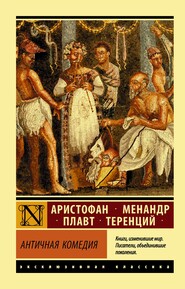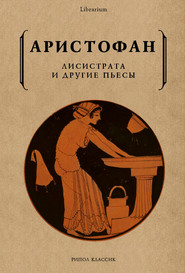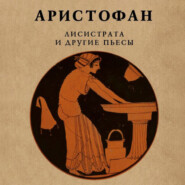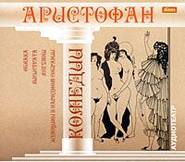По всем вопросам обращайтесь на: info@litportal.ru
(©) 2003-2024.
✖
The Eleven Comedies, Volume 1
Автор
Год написания книги
2018
Настройки чтения
Размер шрифта
Высота строк
Поля
158
The Peloponnesian War had already, at the date of the representation of the 'Acharnians,' lasted five years, 431-426 B.C.; driven from their lands by the successive Lacedaemonian invasions, the people throughout the country had been compelled to seek shelter behind the walls of Athens.
159
Shortly before the meeting of the Assembly, a number of young pigs were immolated and a few drops of their blood were sprinkled on the seats of the Prytanes; this sacrifice was in honour of Ceres.
160
The name, Amphitheus, contains the word, [Greek: Theos], god.
161
Amongst other duties, it was the office of the Prytanes to look after the wants of the poor.
162
The summer residence of the Great King.
163
Referring to the hardships he had endured garrisoning the walls of Athens during the Lacedaemonian invasions early in the War.
164
Cranaus, the second king of Athens, the successor of Cecrops.
165
Lucian, in his 'Hermotimus,' speaks of these golden mountains as an apocryphal land of wonders and prodigies.
166
Cleonymus was an Athenian general of exceptionally tall stature; Aristophanes incessantly rallies him for his cowardice; he had cast away his buckler in a fight.
167
A name borne by certain officials of the King of Persia. The actor of this part wore a mask, fitted with a single eye of great size.
168
Jargon, no doubt meaningless in all languages.
169
The Persians styled all Greeks 'Ionians' without distinction; here the Athenians are intended.
170
A Greek measure, containing about six modii.
171
Noted for his extreme ugliness and his obscenity. Aristophanes frequently holds him to scorn in his comedies.
172
Ambassadors were entertained there at the public expense.
173
King of Thrace.
174
The tragic poet.
175
A feast lasting three days and celebrated during the month Pyanepsion (November). The Greek word contains the suggestion of fraud ([Greek: apat_e]).
176
A Thracian tribe from the right bank of the Strymon.
177
The Boeotians were the allies of Sparta.
178
Dicaeopolis had brought a clove of garlic with him to eat during the Assembly.
179
Garlic was given to game-cocks, before setting them at each other, to give them pluck for the fight.
180
At the least unfavourable omen, the sitting of the Assembly was declared at an end.
181
The deme of Acharnae was largely inhabited by charcoal-burners, who supplied the city with fuel.
182
He presents them in the form of wines contained in three separate skins.











